If you’re looking to break into the rowing world, putting together a resume is a great place to start. Even if you don’t have years of experience in the field, you can put together a resume as an entry-level candidate. This will help you get your foot in the door for interview opportunities. When you think about working in rowing the course, the first thing that comes to mind is being on the water and operating boats. However, that’s not all there is to it. Working as a rowing coach requires you to understand how athletes perform under pressure and how they can improve their performance at the same time. This makes your resume and interviews even more critical than usual. Here are some tips on how to make your resume stand out from others when applying for this job:
Rowing Coach Resume Example

Download This Rowing Coach Resume as PDF
Rowing Camp Director Resume Example
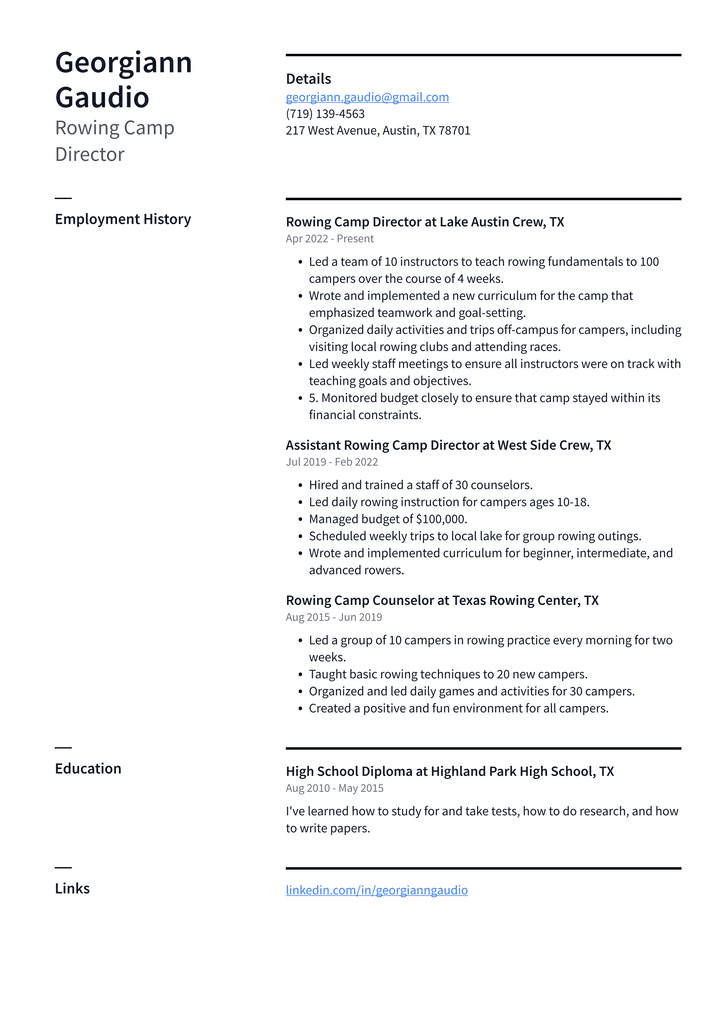
Download This Rowing Camp Director Resume as PDF
Rowing High School Coach Resume Example
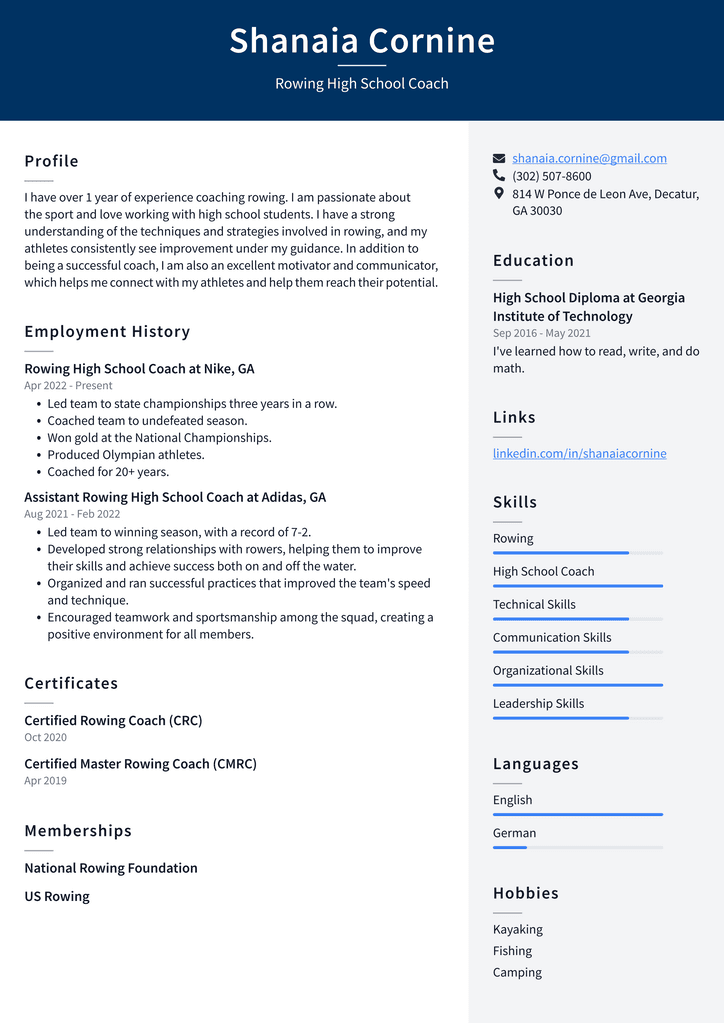
Download This Rowing High School Coach Resume as PDF
Rowing Instructor Resume Example
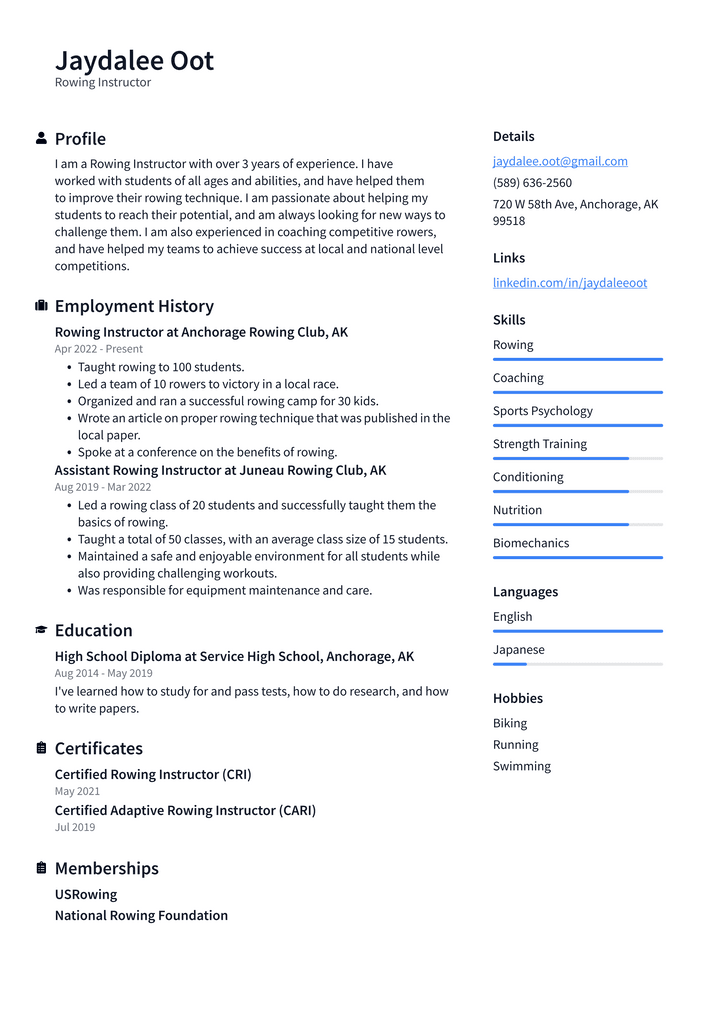
Download This Rowing Instructor Resume as PDF
Rowing League Coach Resume Example
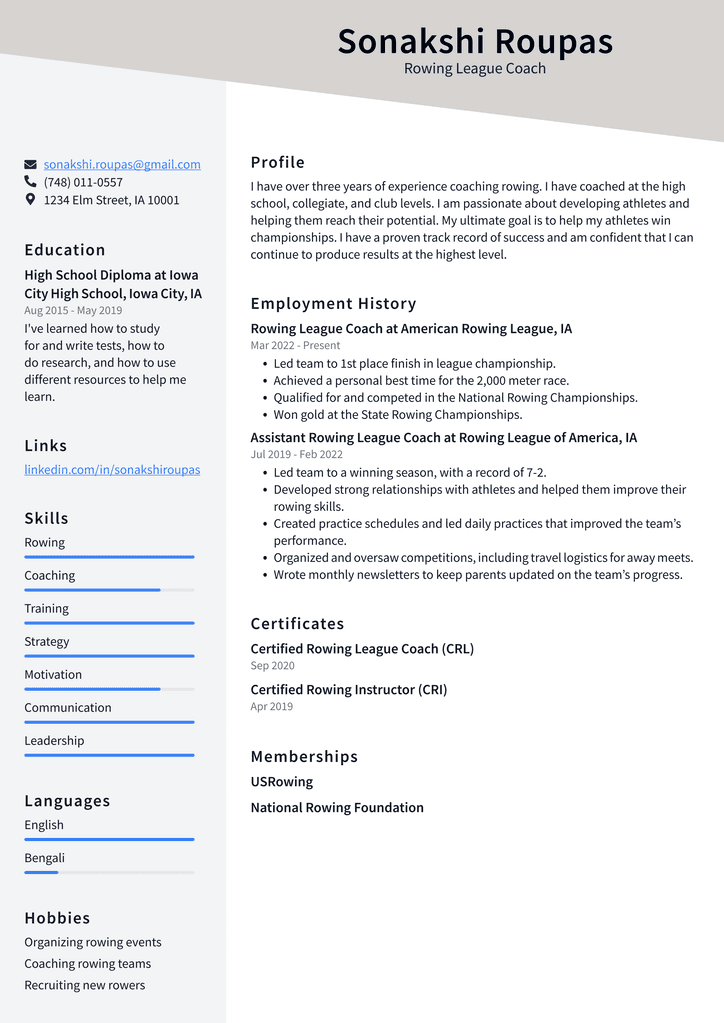
Download This Rowing League Coach Resume as PDF
Rowing Program Director Resume Example
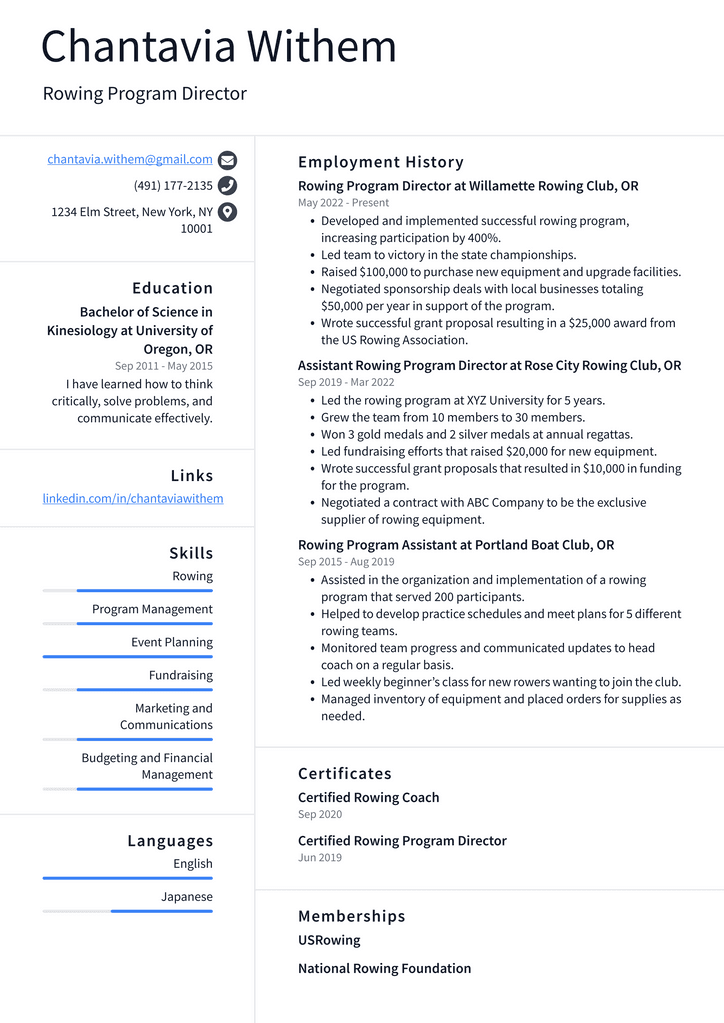
Download This Rowing Program Director Resume as PDF
Rowing Club Coach Resume Example
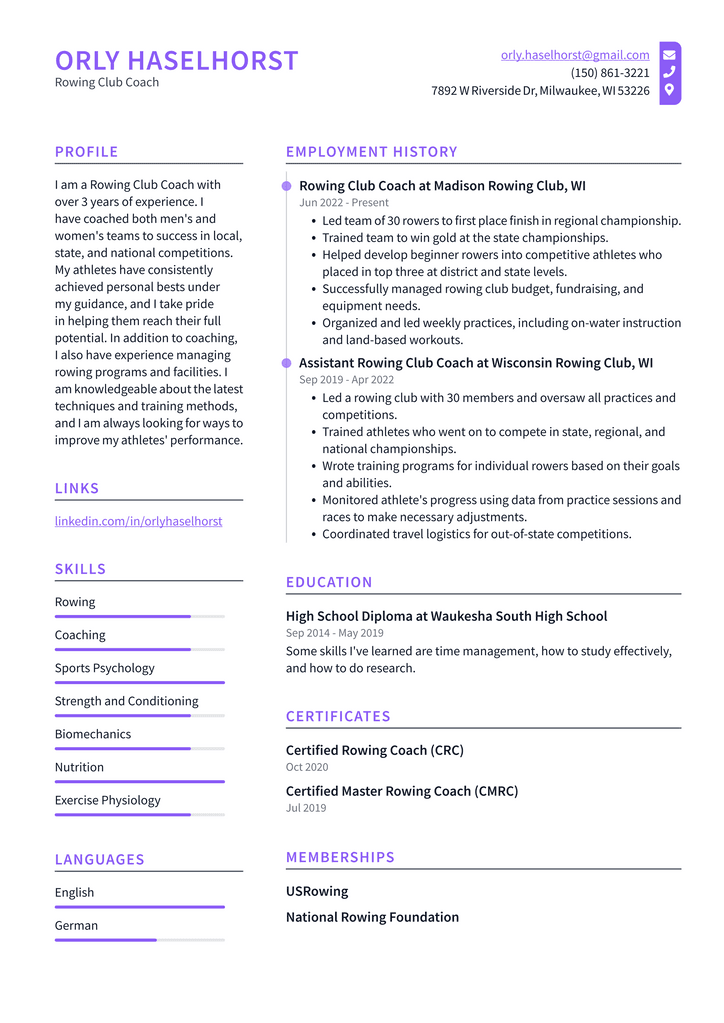
Download This Rowing Club Coach Resume as PDF
Use the right keywords
As with any resume, using the right keywords is essential to get your resume in front of the right people. For example, if you’re applying for a job as a rowing coach, you want to make sure those keywords are listed on your resume. That includes things like “athletic performance” and “rowing coaches” to “rowing team.” You also want to make sure you list your education, as well as any certifications you have. For example, if you have a certificate that shows you know how to teach rowing, you can list that on your resume. That brings us to the next section of your resume: athletics background.
Include your education
As with any other job in a coaching field, you need a college degree. However, the type of degree you have can vary. For example, you could focus on athletic training and physiology, or you may want to focus on biomechanics and kinesiology. It all depends on what you want to focus on as a rowing coach. That being said, you can choose to get a degree in education and coach rowing as a second job. You can also get a Master of Arts in Coaching (MAC). This program will help you hone your skills as a coach and put you in an excellent position for a job in rowing.
Showcase your athletics background
If you’ve played any sports in the past, that can help you when you’re applying for a job in rowing. Some of the skills you learned as an athlete can quickly transfer to coaching. You may notice that some schools will list a preference for coaches who have played a particular sport. This is because it helps coaches relate to the athletes they’re working with and understand what they’re going through.
Mention any coaching experience you have
If you’ve done some coaching in the past, you can include that on your resume. You can even list different coaching jobs you’ve held so far and how long you’ve saved them. If you’ve coached at any competitive levels like high school or college, that can be a big help. You can also list any youth coaching experience you’ve had. If you’ve coached younger athletes, you can also use that experience on your resume.
Add any relevant skills
Finally, you can include any relevant skills on your resume. This could be computer skills, language skills, or other skills. If you have any experience working with rowers or boats, you can also list that on your resume. You may also want to include any leadership experience you have. You can list those skills on your resume if you’ve been in a leadership position in school or other organizations.
Conclusion
In conclusion, rowing coach resumes are a great way to get your foot in the door for job opportunities. When you’re putting together your resume, use the right keywords, include your sports background, mention any coaching experience, and add relevant skills. And remember, the interview is just as important as the resume. Make sure you know what you want to say when you talk to hiring managers so you can get the job you want. Now that you know how to write a rowing coach resume, what other tips do you have? Have you ever applied for a career in rowing? Did you follow these tips? Let us know what else job seekers should know in the comments section below. We’d love to hear from you!